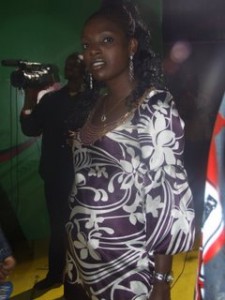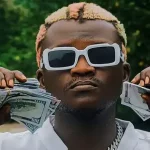
HE’S simply a hard nut to crack. Fighting the battle for the soul of PMAN in the last few years, yet unshaken and still waxing stronger by day, Admiral Dele Abiodun was cornered by TOPE OLUKOLE in Lagos where he exclusively revealed the secret behind his doggedness in the battle for the leadership of PMAN.
“Many members of the opposition in the crisis, including Charly Boy, couldn’t believe that the struggle will go this far; they underrate me and they are paying for their ignorance. Nevertheless, I know posterity would judge me, because I’m fight a just fight”
Are you not really tired with the unending litigations?
How could I, we have good cases all over and the struggle is gradually coming to an end.
When?
Very soon…
How do you intend to rebuild the entire broken fence if you eventually outrun the other faction in the court?
Very simple. Majority of musicians in this country today support our course. Go to state chapters to confirm our overwhelming support, ask the corporate bodies and even the state governments. We are there. It would not take us time to come together and have a common front. We are really not happy with the present standstill situation. Nobody is moving forward. The industry is suffering for all this.
What are your contributions to the music industry?
I came from a musical family and I was involved in music right from my youth when I was in primary school; I was one of the best music boys in the school. When I was in secondary school, the urge to play music then grew in me tremendously and I said to myself that ‘one day I would become a musician.’ So, when I got to Form Four, I was to go to Form Five when I took my first term fees, packed my bags and baggage and ran away from home to Ghana. I did not inform them at home because I knew they would not allow me to go –since I had decided that I would play music I didn’t want anything to disturb me from doing so. When I got to Ghana. I enrolled at Young Pioneers school of Music established by Dr. Kwame Nkrumah, the former Head of State of Ghana. I became a part-time musician and at the same time I learnt the rudiments of music and I specialised in guitar playing. I played bass guitar with a few highlife bands in Ghana before I returned to Nigeria.
I am happy I am one of those who contributed immensely to the development of Juju music; I did my best to revolutionise it. I placed immense emphasis on Hawaii guitar and Gangan; I tried as much as possible to have melody in whatever I played. Some of my creations include Elemu N Get On, Won si ma gba, Kokunrin ta torin, kobinrin ta torin and several others. After I left my recording company I had a break for sometime; during the break some other artistes came out and it was a good development but in 1981 I came out again with some fantastic numbers and since then I have been on the move.


















